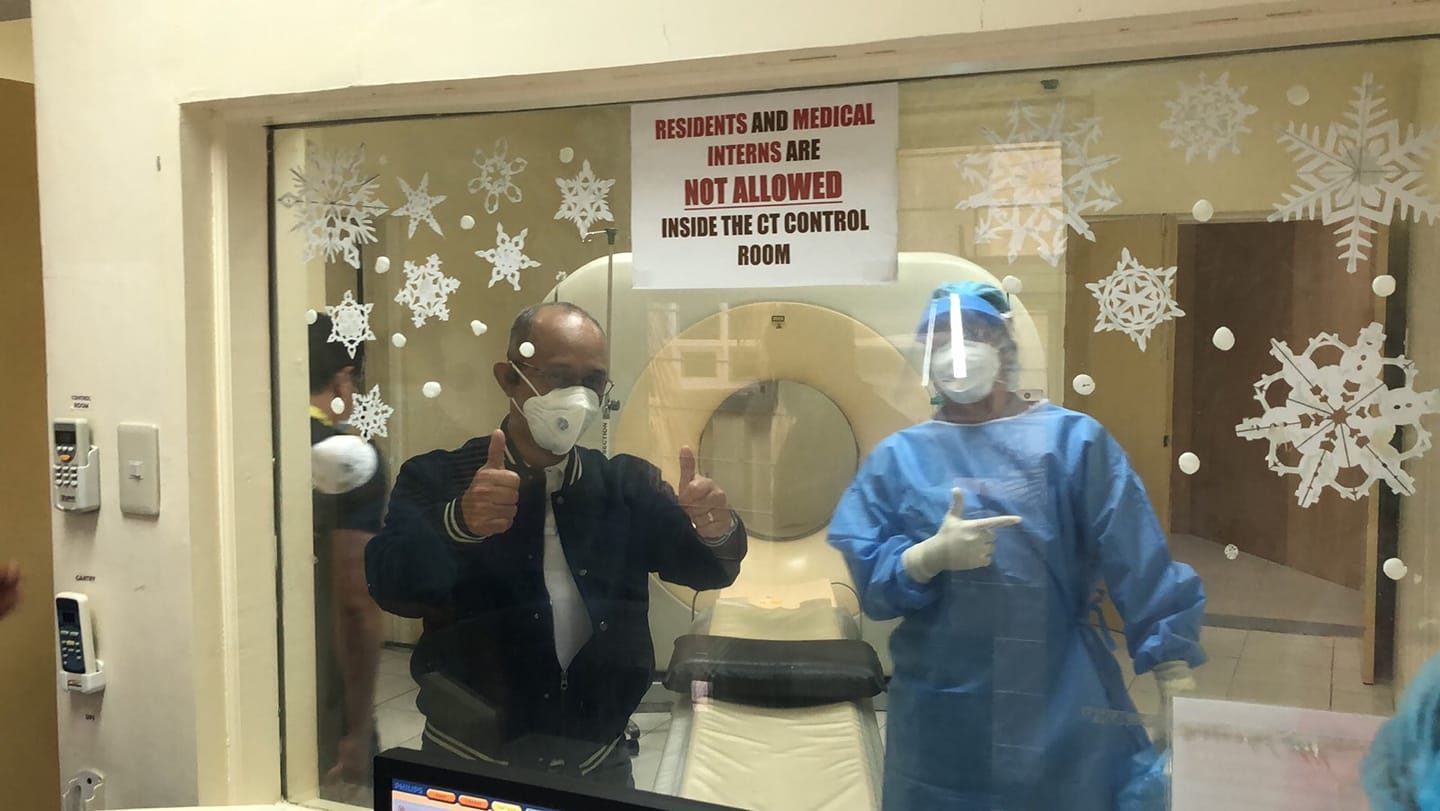SUMMARY
This is AI generated summarization, which may have errors. For context, always refer to the full article.

BAGUIO CITY, Philippines – Baguio City Mayor Benjamin Magalong spoke to him and persuaded him to come out in the open about testing positive for the novel coronavirus disease.
He thought about it. He declined, but changed his mind. On Wednesday, April 1, Doctor Manuel Kelly posted it on social media. It wasn’t an April Fool’s joke.
Kelly is among 5 coronavirus cases out of the city’s total 12 cases to identify themselves to the public.
“As a frontliner, working as a doctor, we can’t help but be exposed to this dreadful pandemic. For the safety of everyone I may have encountered or came in contact with, I want to be transparent,” Kelly said.
Magalong thanked Kelly and the others before him. “I am commending him for his courage and for responding to my call for transparency,” the mayor said.
Kelly received his test results on March 27. He asked everyone who crossed paths with him from March 13 to 26 to undergo self-quarantine and get themselves checked if they exhibit symptoms for coronavirus.
Magalong’s unconventional approach
Baguio’s 5 coronavirus cases heeded the plea of the mayor, who believed that transparency is the most effective strategy to immediately trace and isolate the contacts of positive cases.
The call for transparency came with Magalong’s stern reminder to appreciate, not ostracize, those who had the courage to identify themselves. He said their sacrifice will go a long way in stemming the spread of the virus.
“Ostracizing them will not do any good to anyone at this point as this will only add to their burden and at the same time thwart our efforts to encourage other patients to publicly come out and help in contact tracing,” Magalong said.
Magalong, a retired police general, gained praise for his unconventional and pioneering approach to fighting coronavirus.
Baguio City was the first to use the Huawei Cloud AI-assisted diagnosis for disease. The city agriculture office’s initiative to distribute vegetable seeds and encourage residents to grow “survival gardens” also went viral on social media and received praises from netizens.
The city is the epicenter of coronavirus outbreak in the Cordillera region, which has 16 confirmed cases. There are two in Abra and two more in Benguet capital La Trinidad. (READ: Coronavirus cases rise outside Metro Manila as tests slowly keep up)
First to use AI technology
Coronavirus hit several of the city’s health workers. Joel Junsay, 52, was the first to heed the mayor’s call for transparency. The resident of barangay New Lucban worked as barangay health evaluator at the Baguio City Health Services Office.
He developed symptoms on March 12. He was tested but only received his results on March 28. He is the city’s first known case of local transmission as he had no history of travel outside the City.
“As a frontliner, I have to make the difficult but necessary decision [to reveal] that I tested positive for COVID-19. I took the risk of being exposed just so I could go to work and be of service to the public,” Junsay said in a Facebook post.
Junsay was also the first to test positive for the disease using the Huawei Cloud AI-assisted diagnosis. The technology was installed for free on March 23 in a Baguio facility. It allowed the city to begin immediate tracing of Junsay’s contacts.
Magalong aggressively pushed for early tracing of the contacts of suspected cases. He was dissatisfied with Department of Health’s protocol that begins contract tracing only when the cases are confirmed. It must begin once the red flags are observed, he said.
Ricardo Runez, director of the Baguio General Hospital and Medical Center, said the AI technology determines viral pneumonia. He admitted the result was not conclusive, but it gave doctors a heads-up on possible coronavirus cases.
The Philippine College of Radiology, a society of Philippine radiologists, recently issued a statement questioning the use of the CT scan as a viable diagnostic option. It may also unnecessarily expose other patients being scanned for other ailments to coronavirus, the statement said.
Baguio visitors
Magalong said his call for transparency was also significant for cases with history of travel outside the city, benefitting other areas they also visited.
Among Baguio City’s coronavirus cases were visitors. Three of them identified themselves.
Spouses Enrique and Jaysay Bactad from Las Piñas City in Metro Manila, the epicenter of coronavirus outbreak in the country, heeded the mayor’s call for transparency.
They experienced low grade fever when they travelled to Baguio on March 15. They were admitted a hospital in Baguio, where their samples were taken for testing.
All their known contacts in Las Piñas and Baguio City were put under quarantine.
A 59-year-old US national from New York also supported the mayor’s call.
Rafael Serrano arrived in Baguio City for a vacation and stayed at Camp 7. He developed symptoms on March 16, days after he arrived from Bangkok on March 12.
Serrano visited several establishments and attended a family affair on March 19. – Rappler.com
Add a comment
How does this make you feel?
There are no comments yet. Add your comment to start the conversation.